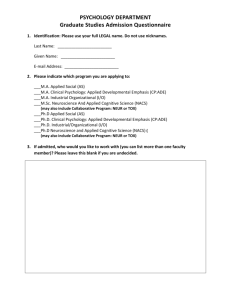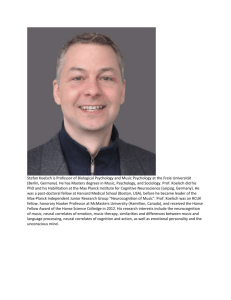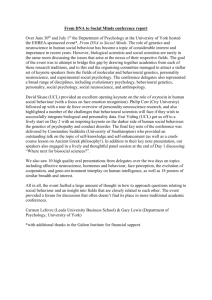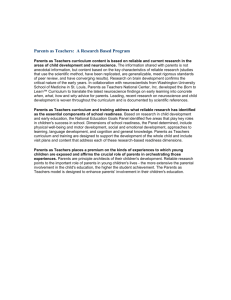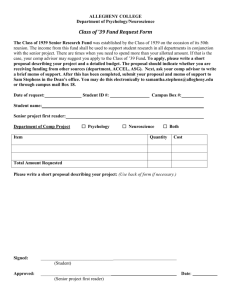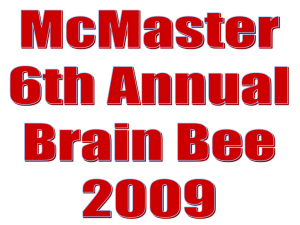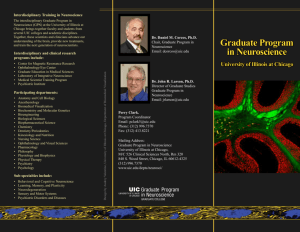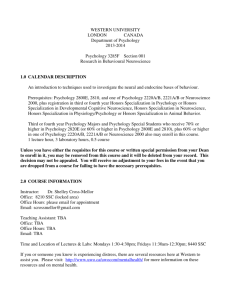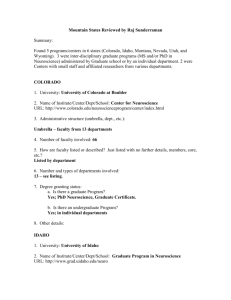Grad students - Department of Psychology
advertisement
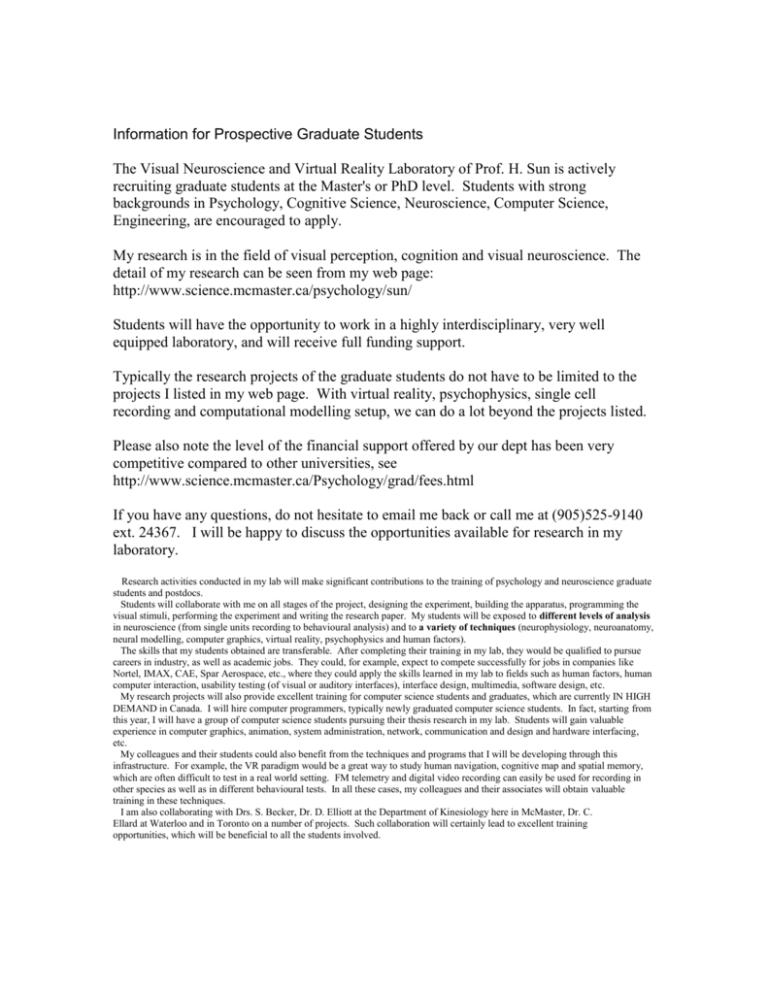
Information for Prospective Graduate Students The Visual Neuroscience and Virtual Reality Laboratory of Prof. H. Sun is actively recruiting graduate students at the Master's or PhD level. Students with strong backgrounds in Psychology, Cognitive Science, Neuroscience, Computer Science, Engineering, are encouraged to apply. My research is in the field of visual perception, cognition and visual neuroscience. The detail of my research can be seen from my web page: http://www.science.mcmaster.ca/psychology/sun/ Students will have the opportunity to work in a highly interdisciplinary, very well equipped laboratory, and will receive full funding support. Typically the research projects of the graduate students do not have to be limited to the projects I listed in my web page. With virtual reality, psychophysics, single cell recording and computational modelling setup, we can do a lot beyond the projects listed. Please also note the level of the financial support offered by our dept has been very competitive compared to other universities, see http://www.science.mcmaster.ca/Psychology/grad/fees.html If you have any questions, do not hesitate to email me back or call me at (905)525-9140 ext. 24367. I will be happy to discuss the opportunities available for research in my laboratory. Research activities conducted in my lab will make significant contributions to the training of psychology and neuroscience graduate students and postdocs. Students will collaborate with me on all stages of the project, designing the experiment, building the apparatus, programming the visual stimuli, performing the experiment and writing the research paper. My students will be exposed to different levels of analysis in neuroscience (from single units recording to behavioural analysis) and to a variety of techniques (neurophysiology, neuroanatomy, neural modelling, computer graphics, virtual reality, psychophysics and human factors). The skills that my students obtained are transferable. After completing their training in my lab, they would be qualified to pursue careers in industry, as well as academic jobs. They could, for example, expect to compete successfully for jobs in companies like Nortel, IMAX, CAE, Spar Aerospace, etc., where they could apply the skills learned in my lab to fields such as human factors, human computer interaction, usability testing (of visual or auditory interfaces), interface design, multimedia, software design, etc. My research projects will also provide excellent training for computer science students and graduates, which are currently IN HIGH DEMAND in Canada. I will hire computer programmers, typically newly graduated computer science students. In fact, starting from this year, I will have a group of computer science students pursuing their thesis research in my lab. Students will gain valuable experience in computer graphics, animation, system administration, network, communication and design and hardware interfacing, etc. My colleagues and their students could also benefit from the techniques and programs that I will be developing through this infrastructure. For example, the VR paradigm would be a great way to study human navigation, cognitive map and spatial memory, which are often difficult to test in a real world setting. FM telemetry and digital video recording can easily be used for recording in other species as well as in different behavioural tests. In all these cases, my colleagues and their associates will obtain valuable training in these techniques. I am also collaborating with Drs. S. Becker, Dr. D. Elliott at the Department of Kinesiology here in McMaster, Dr. C. Ellard at Waterloo and in Toronto on a number of projects. Such collaboration will certainly lead to excellent training opportunities, which will be beneficial to all the students involved.
